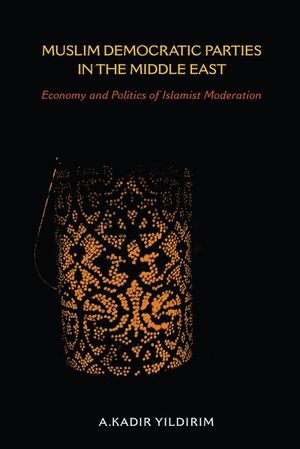Muslim Democratic Parties in the Middle East
Published by Indiana University Press
“Represents an important advancement in developing the strand of literature that considers how economic conditions affect Islamist movements.” —Middle Eastern Studies
A. Kadir Yildirim and other scholars have used the term “Muslim Democrat” to describe moderate Islamist political parties, suggesting a parallel with Christian Democratic parties in Europe. These parties (MDPs) are marked by their adherence to a secular political regime, normative commitment to the rules of a democratic political system, and the democratic political representation of a religious identity.
In this book, Yildirim draws on extensive field research in Turkey, Egypt, and Morocco to examine this phenomenon and assess the interaction of economic and political factors in the development of MDPs. Distinguishing between “competitive [economic] liberalization” and “crony liberalization,” he argues that MDPs are more likely to emerge and succeed in the context of the former. He summarizes that the broader implication is that the economic liberalization models adopted by governments in the region in the wake of the Arab Spring have significant implications for the future direction of party systems and democratic reform.
A. Kadir Yildirim and other scholars have used the term “Muslim Democrat” to describe moderate Islamist political parties, suggesting a parallel with Christian Democratic parties in Europe. These parties (MDPs) are marked by their adherence to a secular political regime, normative commitment to the rules of a democratic political system, and the democratic political representation of a religious identity.
In this book, Yildirim draws on extensive field research in Turkey, Egypt, and Morocco to examine this phenomenon and assess the interaction of economic and political factors in the development of MDPs. Distinguishing between “competitive [economic] liberalization” and “crony liberalization,” he argues that MDPs are more likely to emerge and succeed in the context of the former. He summarizes that the broader implication is that the economic liberalization models adopted by governments in the region in the wake of the Arab Spring have significant implications for the future direction of party systems and democratic reform.
BUY NOW FROM
COMMUNITY REVIEWS

